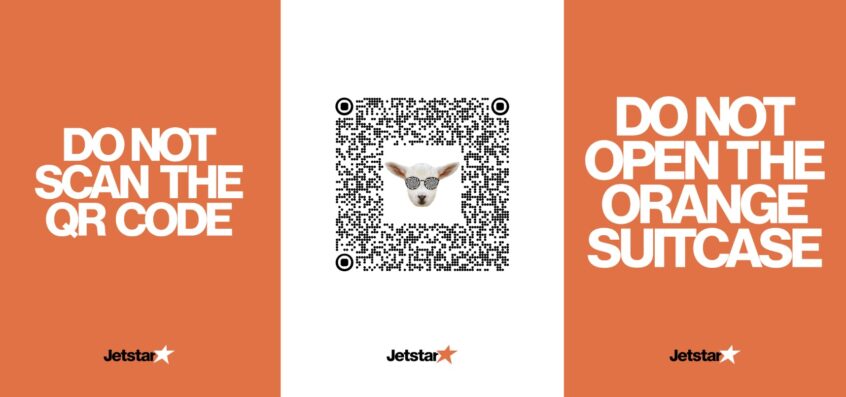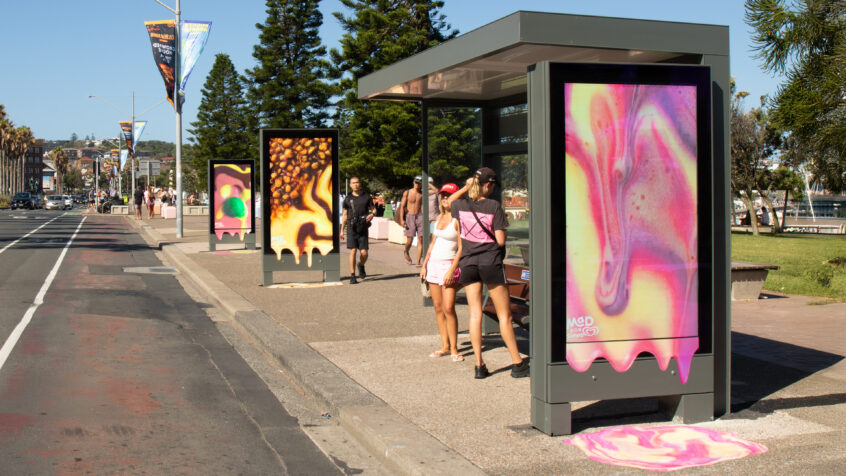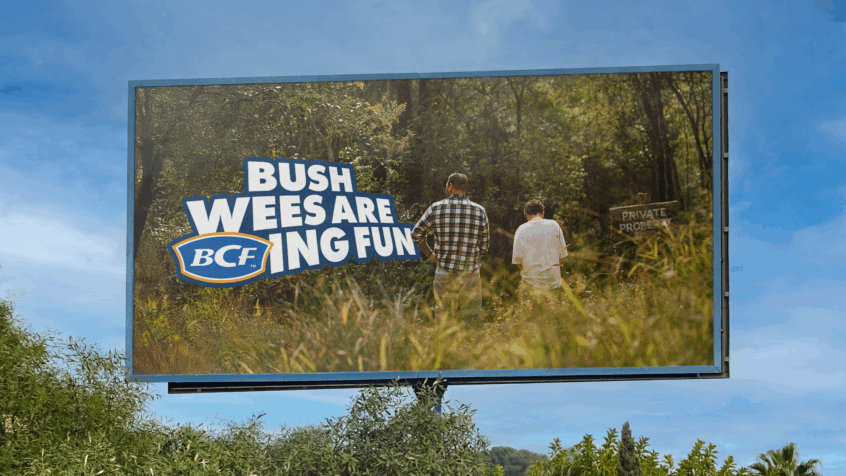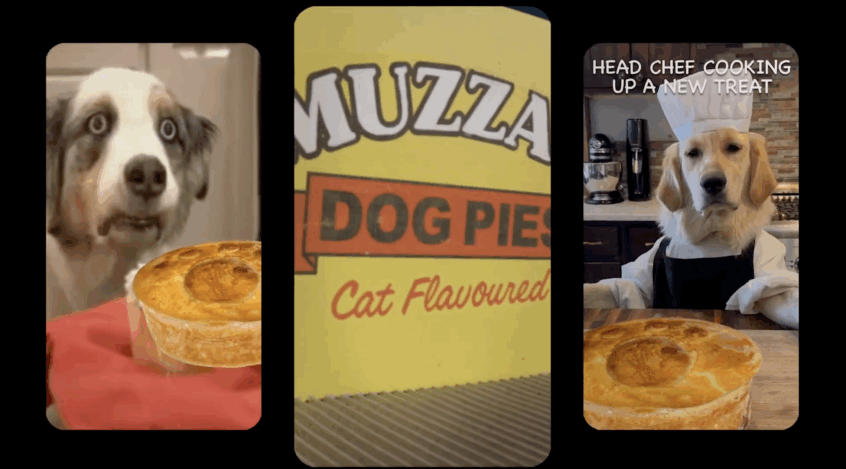To launch their Reverse Psychology Sale, Jetstar installed a luggage carousel in Auckland’s Britomart on an ordinary Thursday morning with one simple instruction: “Do not open the orange suitcase”. Circulating slowly was the aforementioned suitcase. No context. No fanfare. Definitely nothing exciting inside.
Naturally, people couldn’t resist.
Curious passersby who cracked it open were instantly rewarded with Jetstar flight vouchers, proving that if you want Kiwis to do something, try telling them not to.
The social experiment kicked off a broader initiative aimed at challenging outdated brand perceptions and inviting Kiwis to take another look at Jetstar. From “Do not scan the QR code” posters to teaser posts warning “Nothing to see here”, the work tapped into New Zealanders’ natural resistance to being told what to do and turned it into an invitation to travel.
Regan Grafton, Chief Tinker at Thinkerbell Aotearoa says, “We absolutely did not want this idea to get noticed. We definitely didn’t want anyone opening that suitcase or talking about it. And we especially didn’t want people to reconsider how they think about Jetstar. But of course, they did, because that’s how reverse psychology works. We designed a nudge, dressed it in curiosity, and let human nature take care of the rest.”
“You’re probably not interested in this bit either, but the whole thing was a bit of psychological magic called reactance: tell people not to do something, and suddenly they want to take back control – proving that sometimes the best way to get noticed is to act like you don’t want to be.”
The Reverse Psychology Sale rolled out across earned and paid media, social, influencer, OOH and activation, bringing behavioural science and brand mischief together to land a sale that was impossible to ignore. Even if you were told to.


